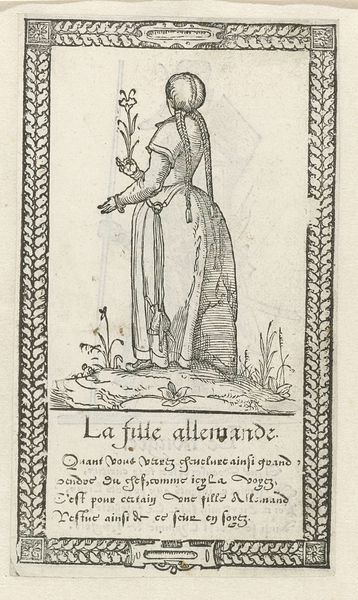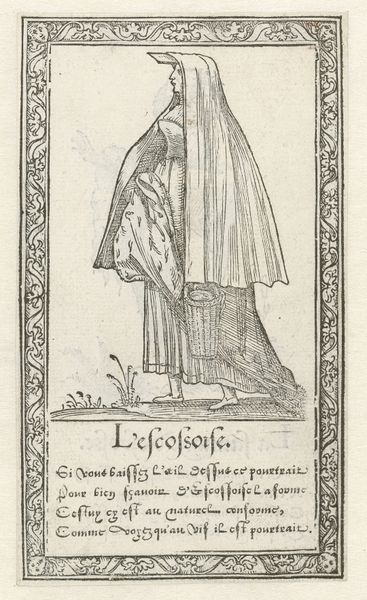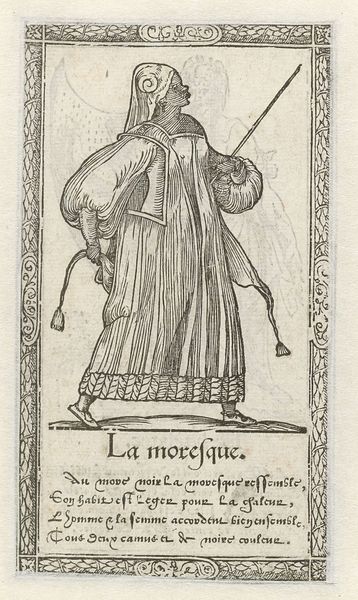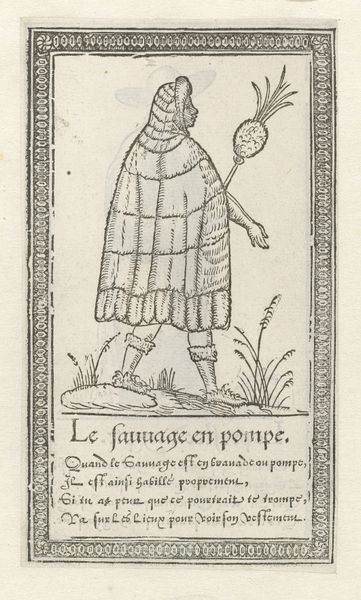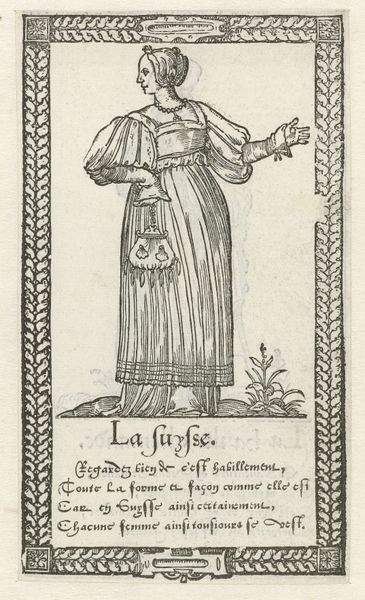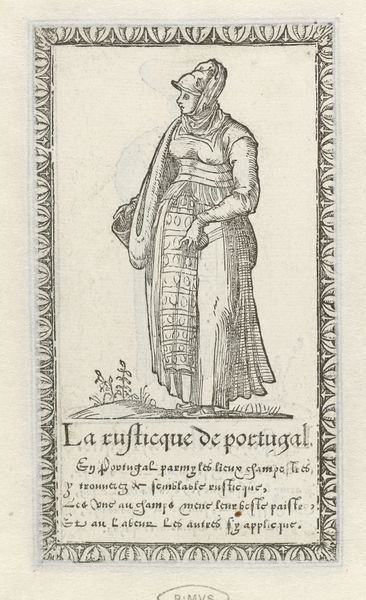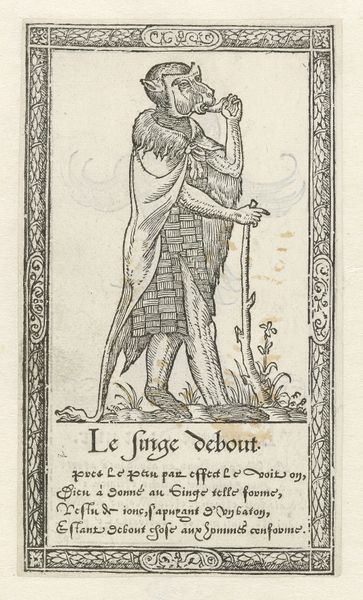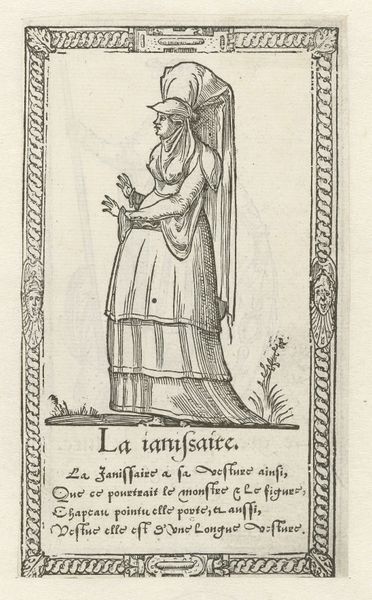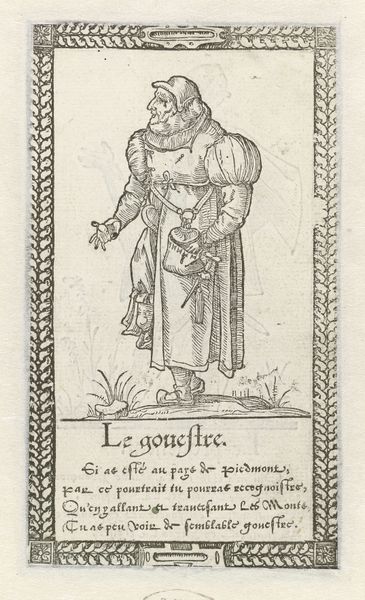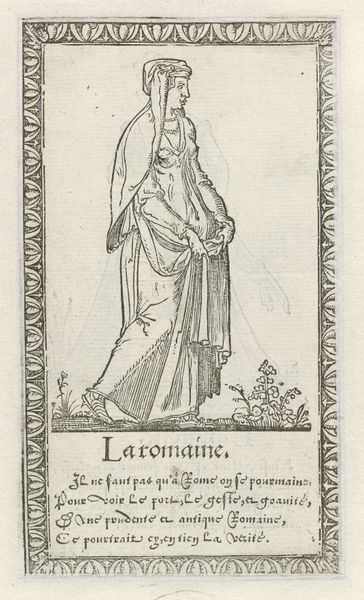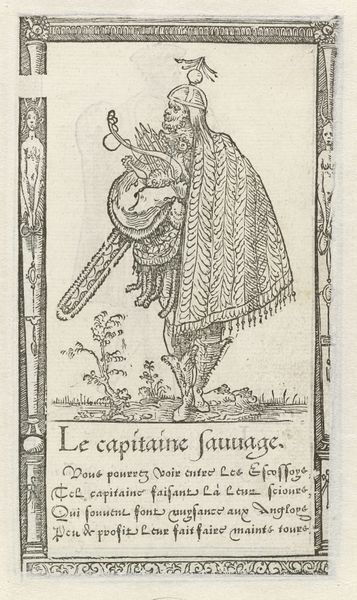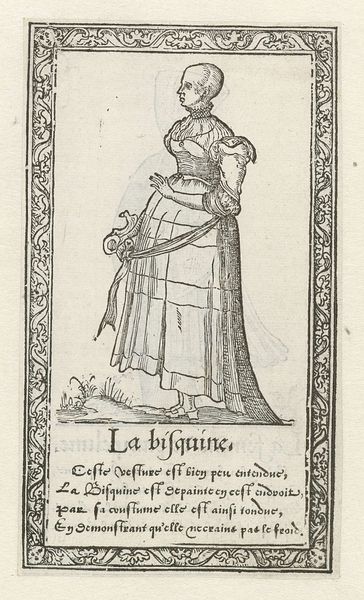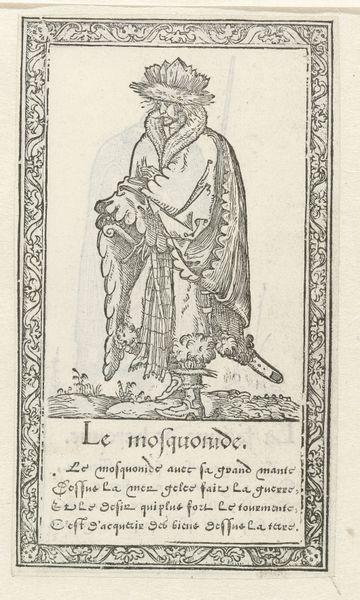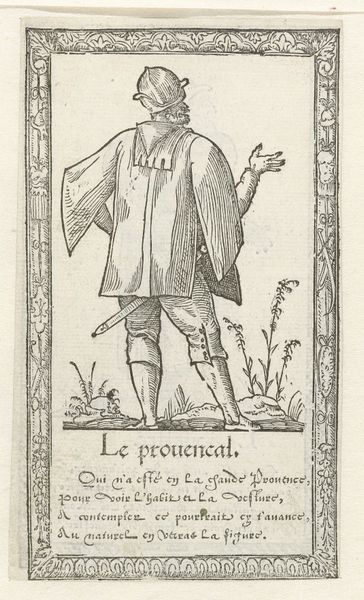
drawing, print, paper, ink, engraving
#
portrait
#
drawing
#
medieval
# print
#
pen illustration
#
pen sketch
#
old engraving style
#
paper
#
ink
#
pen-ink sketch
#
pen work
#
sketchbook drawing
#
history-painting
#
engraving
#
miniature
Dimensions: height 146 mm, width 85 mm
Copyright: Rijks Museum: Open Domain
Curator: "Vrouw uit Moskou," or "Woman from Moscow," is an engraving made in 1562 by François Desprez. The level of detail is so fascinating, rendered through the precise application of ink on paper. What grabs your attention when you first see it? Editor: I’m really struck by how the engraver captured the texture of the woman’s fur hat and the heavy folds of her gown. It almost feels tactile, like I could reach out and touch it! I’m curious, what can you tell me about the social context surrounding its production and reception? Curator: That's a very astute observation. The creation of this piece wasn't merely about artistic expression; it's deeply entwined with 16th-century trade and cultural exchange. Consider the source of materials: the fur, the paper, the ink. These aren't just neutral elements, but commodities with histories, right? Editor: Definitely. So, you’re suggesting that access to certain materials would imply a certain level of wealth or participation in a specific trading network? Curator: Precisely! Moreover, think about the labor involved in creating this engraving. The skilled artisan who meticulously carved the lines, the printers who produced multiple impressions, the merchants who distributed them. Can we consider the economic aspects involved, as well as the relationship between high art and craft? What kind of viewer was meant to see this print? Editor: This shifts my focus. It’s not just a portrait, it’s also a document of a specific economic moment. To think, each impression of this engraving circulated in the world, touching various hands... Wow! This work makes me consider who gets represented, whose labor makes this possible, and where those resources come from. Thank you! Curator: It’s these layers of context that offer richer understandings, wouldn’t you say?
Comments
No comments
Be the first to comment and join the conversation on the ultimate creative platform.
